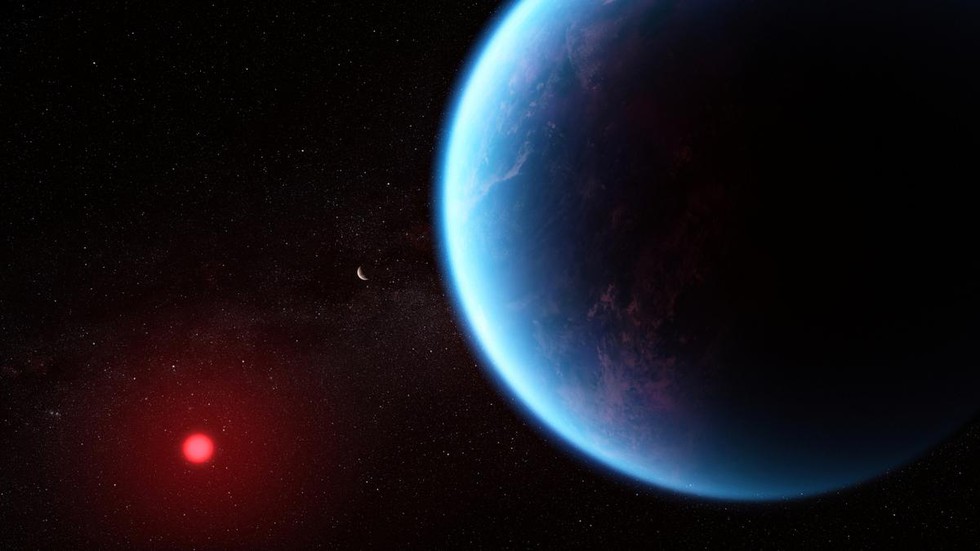
K2-18b

21.04.2025
K2-18b
|
For Prelims: What is K2-18b?, About Dimethyl Sulphide (DMS) |
Why in the news?
In 2025, scientists detected the presence of either dimethyl sulphide (DMS) or dimethyl disulphide (DMDS) in the atmosphere of K2-18b.
What is K2-18b?
- K2-18b is an exoplanet (a planet located outside our solar system) situated 124 light-years away from Earth in the constellation Leo, orbiting a star called K2-18.
- It was discovered in 2015 by the Kepler Space Telescope.
- K2-18b is 5.2 times wider and around 9 times more massive than Earth, suggesting it may possess a hydrogen-rich atmosphere.
- The planet receives a similar level of stellar radiation from its star as Earth does from the Sun, hinting at the possibility of habitable surface conditions.
Atmospheric Discoveries:
- In 2019, the Hubble Space Telescope detected water vapour in the atmosphere of K2-18b.
- Later, the James Webb Space Telescope (JWST) found the presence of carbon dioxide (CO₂) and methane (CH₄).
- The absence of ammonia along with CO₂ and CH₄ in a hydrogen-rich atmosphere is significant because it may indicate the possible presence of a liquid water ocean.
About Dimethyl Sulphide (DMS):
- DMS is considered a potential biomarker because, on Earth, it is mostly produced by phytoplankton in the oceans.
- DMS is formed when phytoplankton die and enzymes break down dimethylsulphoniopropionate (DMSP).
- It is also released when soil bacteria decompose plant matter and in trace amounts during volcanic eruptions.
- A 2015 study found that 76% of soil bacteria on Earth contain a gene that produces DMS, reinforcing its biological origin.
Source: Indian Express
Consider the following statement regarding to the K2-18b:
1.K2-18b is an exoplanet (a planet located outside our solar system) situated 124 light-years away from Earth.
2.It was discovered in 2015 by the Kepler Space Telescope.
Which of the statements given above is/are correct?
A.1 only
B.2 only
C.Both 1 and 2
D.Neither 1 nor 2
Answer C